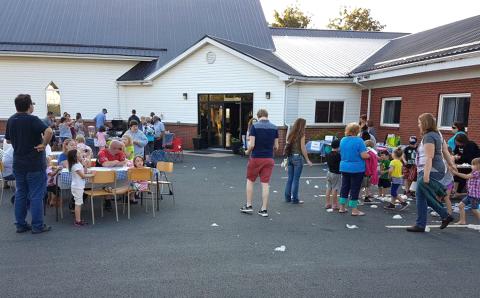In the medical world, the symptom that causes a person to seek help from a doctor, therapist, or other provider is the presenting problem. However, there could be underlying problems unknown to the patient that are causing the presenting symptom. For example, I might complain to my doctor of a chronic headache. That’s my presenting problem. But my underlying problem might be a brain tumor.
Similarly, we as a denomination have a lot of presenting problems right now, from divisions over LGBTQ+ issues to anti-racism approaches, among others, and we have focused our collective attention mostly on these presenting problems. But what if we have some serious, unaddressed underlying problems?
In past editorials, I have identified our spiritual and intellectual pride, our need for holistic spiritual revival, an overly intellectual faith that assumes there are intellectual solutions to all problems, domesticating Scripture to confirm our agendas and biases, and a hyperfocus on outward religious conformity rather than inner spiritual transformation, to name a few. If we in the Christian Reformed Church do not resolve our underlying issues, we will never resolve our presenting problems. Even if we are able to end the same-sex marriage debate once and for all, some other issue will polarize and divide us if we don’t deal with our underlying problems. Yesterday it was fighting over women in office; today it is same-sex marriage; tomorrow it will be something else. We will always fight over something unless we face and resolve our underlying issues. As far as I can tell, we have collectively ignored them.
We cannot simply pin the blame on so-called “liberals” on one hand or so-called “conservatives” on the other. For me, all sides of the debates share the underlying problems. From my experience, it seems that too many readers cannot or will not see past their partisan lenses to read my editorials as diagnosing shared spiritual issues. That itself is a symptom of a big problem. For these readers, most of what I have written is cast and interpreted in light of polarized partisanship and the U.S. “culture wars.” Everything is read with the question “Are you for us or against us?” I would much rather people ask, “Are you for Christ or against Christ?” To that I would answer, “I have always tried to be Christ’s servant.”
Here is another underlying problem: I suspect the hostile sides in the CRCNA have different operative worldviews. I say “operative” because we might all espouse a certain theology or worldview, but what actually operates in our default postures and practices might be different. Are our operative worldviews sorely infected by unbiblical ideas?
Even the concept of worldviews is contested. Christians have different explanations of what counts as a biblical worldview. And yes, the concept of worldviews has been weaponized as well in our polarized world.
I fear I don’t exactly know the way forward. But I know God, who holds us in his hands, knows the future and the way. And our trust is in God.
About the Author
Shiao Chong is editor-in-chief of The Banner. He attends Fellowship Christian Reformed Church in Toronto, Ont.
Shiao Chong es el redactor jefe de The Banner. El asiste a Iglesia Comunidad Cristiana Reformada en Toronto, Ont.
시아오 총은 더 배너 (The Banner)의 편집장이다. 온타리오 주 토론토의 펠로우쉽 CRC에 출석한다.
You can follow him @shiaochong (Twitter) and @3dchristianity (Facebook).









